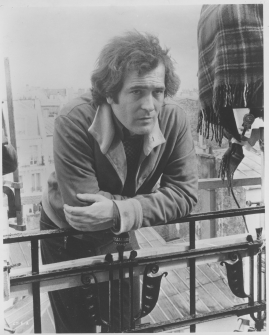Susan Sontag
Table of contents
- Basic facts
- Links and resources
- Biography
- Awards
- Films
- Original work
- Soundtrack listing
- Groups
Basic facts
| Cast |
|
|---|---|
| Director |
|
| Show all films |
Biography
American writer, essayist and director. Born and died in New York City, New York.-Susan Sontag was a well-known American intellectual who had written several novels and the groundbreaking collection of essays "Against Interpretation" – in which she launched the term "camp" – when she was invited to Sweden by the Ministry for Foreign Affairs in the spring of 1968. A highly active member of the anti-war movement, the invitation was prompted by a number of reports she had written from North Vietnam. The head of Sandrews, Göran Lindgren, offered to produce a film...
Biography
American writer, essayist and director. Born and died in New York City, New York.
-
Susan Sontag was a well-known American intellectual who had written several novels and the groundbreaking collection of essays "Against Interpretation" – in which she launched the term "camp" – when she was invited to Sweden by the Ministry for Foreign Affairs in the spring of 1968. A highly active member of the anti-war movement, the invitation was prompted by a number of reports she had written from North Vietnam. The head of Sandrews, Göran Lindgren, offered to produce a film which Sontag would write and direct. The upshot of this offer was actually two films.
Both her debut film Duet for Cannibals (Duett för kannibaler, 1969) and Brother Carl, made two years later, were somewhat convoluted relationship dramas. The first is about Tomas, live-in partner of Inger, who gets a job with the revolutionary refugee Doctor Bauer, sorting through his diaries and other papers. The Doctor's wife Francesca is attracted by Tomas, and to cut an overlong story short, a 'wife swap' takes place before Bauer eventually shoots himself in the belief that Francesca is dead. In Brother Carl the characters are part of the theatre world. Neurotic and suspected of incestuous tendencies, the former dancer Carl is the catalyst of the drama, at the end of which he may or may not be dead.
The critics of the time had little praise for either of the films. The first was considered static, over-contrived and quasi-intellectual. The second came in for even harsher criticism if such were possible: the word lambasted springs to mind. It was seen as cold, pretentious and obscure. Neither film was a box office success. Why did they go so wrong? Perhaps because the fragmentation and stylisation that Sontag made use of in her novels do not function well in film. In a novel much can remain uncertain, whereas film requires a structure which is more clear-cut.
Sontag was first and foremost an intellectual: an incisive analyst, prominent university lecturer and essayist. Some years after her stay in Sweden she published the acclaimed collection of essays "On Photography", an insightful work which includes her assertion that the most diligent photographers on holiday are the Americans, Japanese and Swedes, because they are so bound by the work ethic that they simply cannot imagine enjoying leisure without which occupying themselves with something similar to work.
Susan Sontag went on to make two further films, although not in Sweden: Promised Lands (1974) and Letter from Venice (1983).
Gunder Andersson (2011)
(translated by Derek Jones)
Films
| Director |
|
|---|---|
| Screenplay |
|
| Cast |
|
| Participant |

